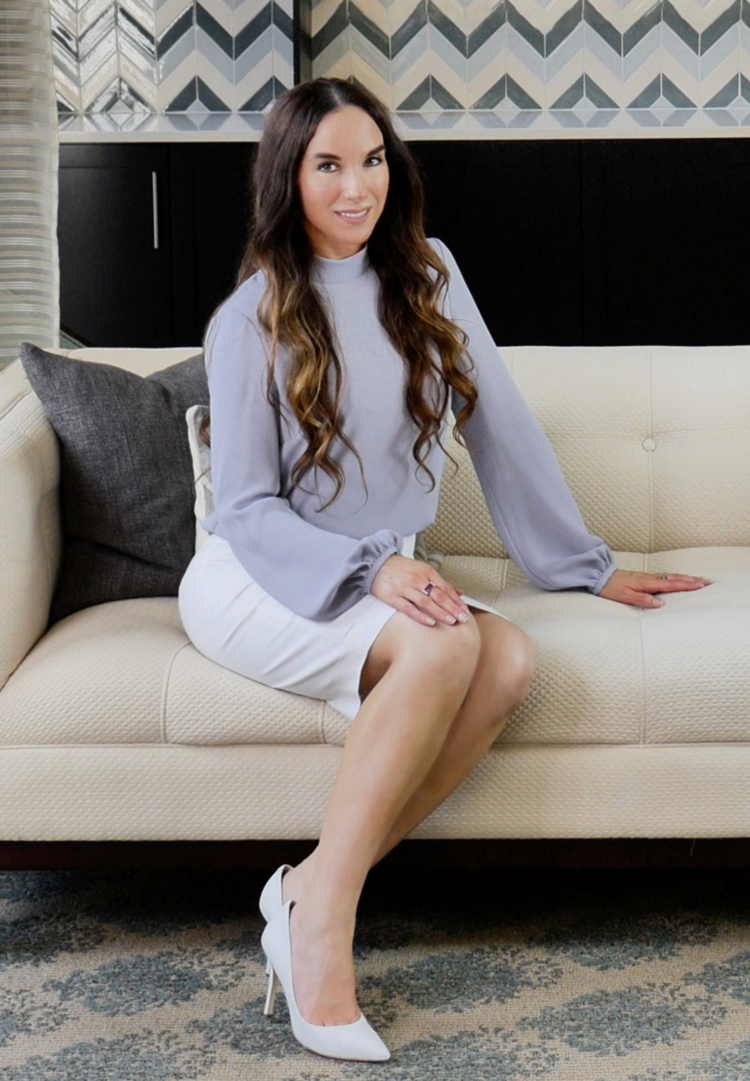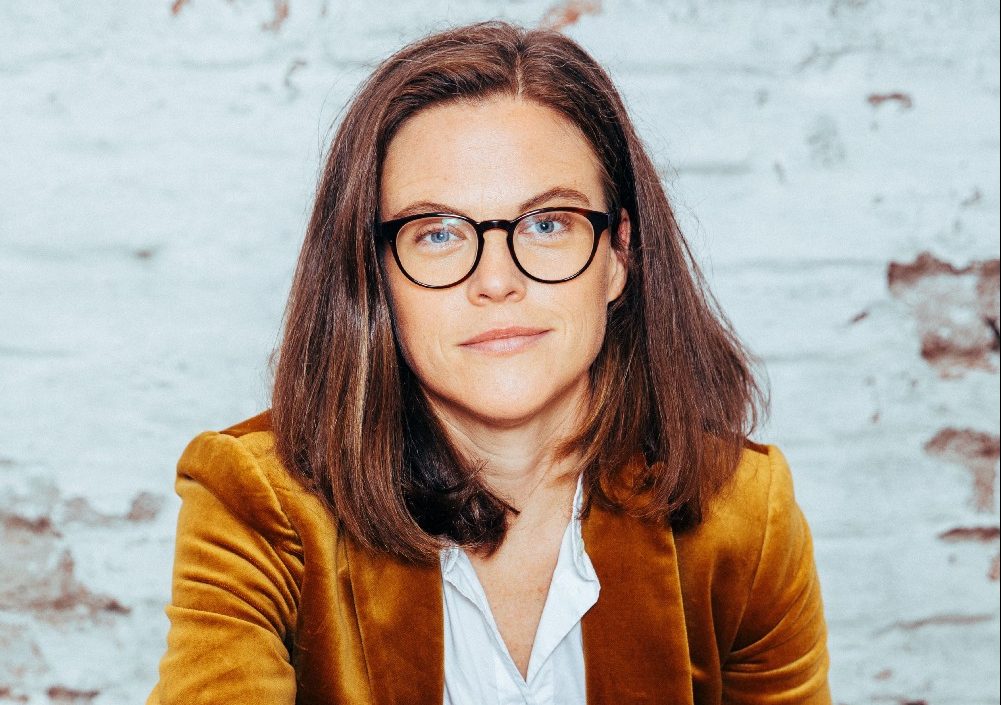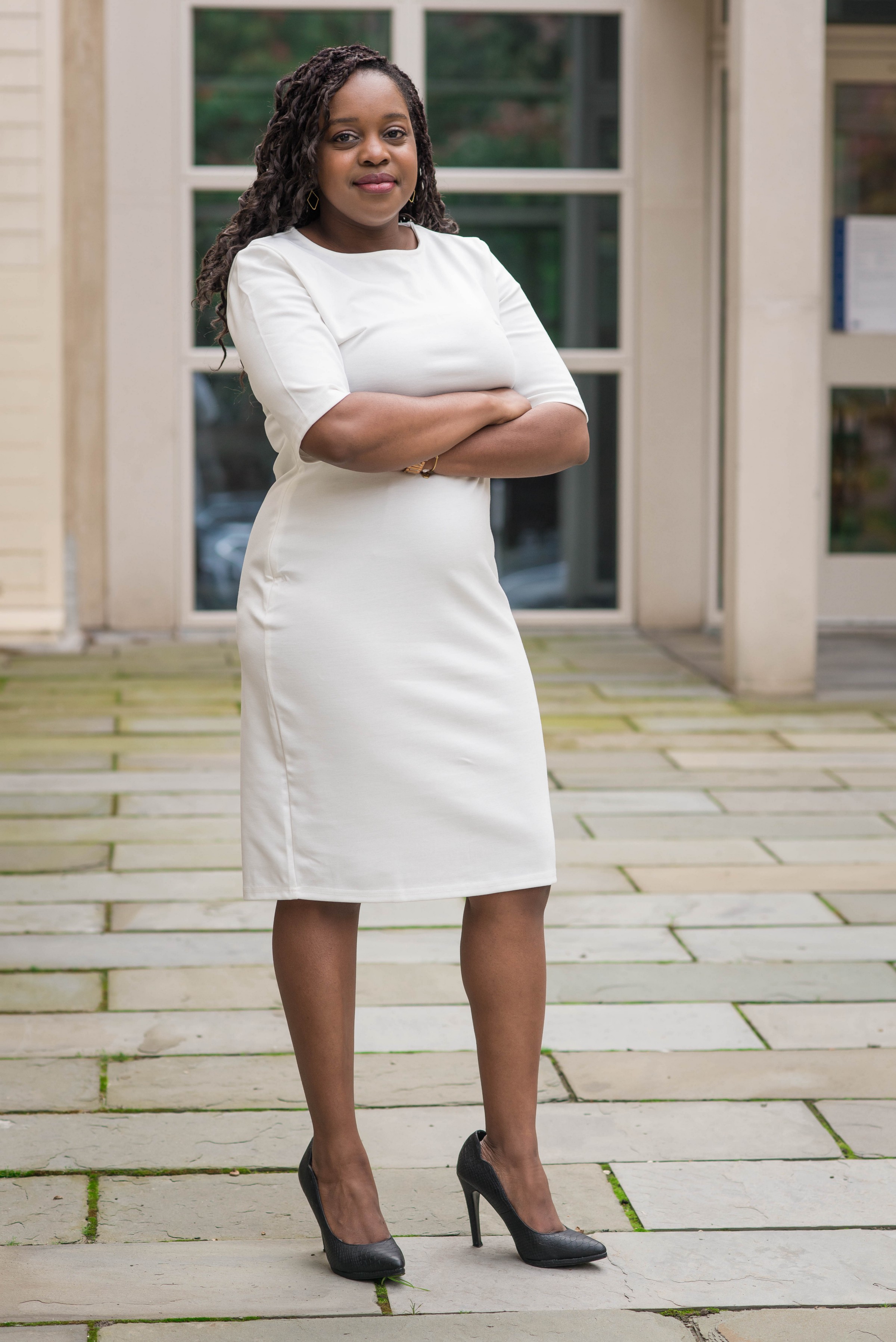Many of us have gone through career setbacks this year, whether our jobs have been made redundant, our job search was interrupted by the pandemic, or our business operations were significantly impacted.
Maybe you’ve even been furloughed or fired twice this year. I feel for you especially.
When the lockdown started in March, I was very close to securing multiple job offers after months of searching. After multiple rounds of interviews with two companies where I was in the final stages, the news of the pandemic felt like I was being pulled back to square one. The roles were both closed and I had to start again.
I had to let go and surrender to what was happening. Based on my beliefs (that everything happens for a reason), I knew that I could trust that this was happening for my own good, even if it didn’t feel like it.
Similarly, when you’re laid off or fired, it can feel like a shock to the system. Your ego can feel bruised, you can feel lost, or like you’ll never be back on your feet again, especially if your identity is connected to the work you do. Yet this setback is an initiation and a blessing in disguise if you choose to view it that way.
Here’s how to get your confidence back after a career setback and how to use it as a launching pad to your next best opportunity, in this order.
Take a short pause.
You’ll want to make decisions for choosing your next job from a place of centeredness. I dove into the job search the same day of being let go from a job once. All that did was add seven months to my job search. It’s not the right thing to do, because you won’t be taking action from a place of clarity.
It will be coming from an emotional place and an unsteady place. You could also be taking action from a fearful place, and I’ve found that decisions made from fear don’t usually turn out well. You’ll also be taking all the old energy from the past experience into your new experience instead of starting over new.
When I’ve experienced recent setbacks, I’ve found that making space for a few days to be still is the best thing you can do. Use that time to focus on taking care of yourself—it will be your time of reset.
Take your self-care to the next level during this time by exercising, practicing yoga and meditation, eating healthfully, using essential oils, getting lost in a favorite TV show, and resting as much as possible to get back on track.
When I lost a friend this year, I healed by taking a pause and started going to yoga twice a week. I also went to my gym’s sauna and jacuzzi, which also helped me to reset.
It doesn’t need to be a long break, but you do need a buffer. Then you can come back to your job search or devising your next steps from a place of balance.
If you haven’t planned for a layoff or firing, you’re going to feel like you need to rush to secure a job very quickly in order to start working and making money again.
Despite this very real truth, I’ve learned that no good decisions come from rushing, because that is coming from a scarcity mindset. A mantra I like to use by Louise Hay is “There’s always enough time for me to do what I need to do.”
Focus only on finding the right job for you. This is when you need to surrender your plans to the universe and take the next right step in front of you. Accept that it might take longer than you’d like to find your next opportunity and learn to be uncomfortable with uncertainty.
Take ownership of what part you played in this outcome.
Even if you were not at fault for being laid off, think of any actions you took that led to this outcome or anything you may have overlooked.
Can you think back to what the job interview process was like? Did you rush into it or embellish on what you were qualified for to get the job? Or has your company gone through changes in the past months or years that have slowly changed your level of opportunity or your fulfillment in your work?
If you quit or were fired, then you can reflect on what led to that outcome too. Even if you didn’t cause the firing through any direct fault of your own, think back on any red flags. Did you ignore any gut feelings you had while interviewing? Did you make assumptions about the role or company?
Or did you rush and take something that was beneath you to avoid the uncomfortable feeling of being without a job? Maybe you did all you could do in your role and it served its purpose. Reflect on this so you can be aware and prevent this from happening again.
One of my first managers gave me the book The Four Agreements by Don Miguel Ruiz and Janet Mills, and it completely changed how I show up not only in my career but in my life. Your mindset will direct your actions, and create your reality. You always have ownership of your side of the street, despite other people’s actions, which is so empowering.
In this order, the agreements are:
Be impeccable with your word
Don’t take anything personally
Don’t make assumptions
Always do your best
When you live by these agreements, derived from ancient Toltec wisdom, you experience happiness and self-respect. When you don’t live by these agreements, you live in a self-created nightmare. I highly recommend reading this book if you’re in this transition right now because you’ll realize how much you truly do have influence over.
By just shifting your perspective, you can look back at when you didn’t follow these agreements and you’ll see a pattern. By following these agreements, you find truth and fulfillment.
I’ve also forgotten to follow these agreements, so there’s no need to feel shameful about it if you do too. You can learn from this experience to avoid it in the future. Don’t take it personally, but do take in the feedback if there was any and reflect on your part in this.
Reading inspiring books like The Four Agreements will help you stay in a positive mindset and empower you with tools to move on to your next step.
Spend more time on your personal life and hobbies.
What I realized after being let go from a job last year was that I had built my life around work without realizing it. I hadn’t taken a vacation in a year, most of my personal connections were from work, so my social circle was small and I didn’t have many hobbies outside of work.
That became very clear to me once I was without work. I identified with it so much that I didn’t realize I filled all my time with it and didn’t have much balance in other areas of my life. Perhaps you’ve noticed the same thing for yourself this year.
I realized something really needed to change when I wasn’t getting any traction on my job search. I had to create action somewhere else, so I started reaching out to new contacts, joined a job search group at my alumna university and started meeting up with new friends for coffee.
I also picked up painting because I had been fascinated by acrylic pour paintings for the last few years but always told myself I was too busy to try it.
All I needed to do was pick up some paints and canvas at Michaels, then watch some YouTube videos. It was a lot easier than I made it out to be and I found I could relieve a lot of stress through painting. I even started selling my paintings online.
It gave me some feeling of purpose in creative expression too, as I joined local art communities to display my paintings.
An equally important aspect of life is fulfilling relationships and hobbies outside of work. People will be there for you when jobs aren’t. Spend time with loved ones, who will support you and reflect back the real ‘you’ to you.
The aspect of you that is talented and successful, with or without a job at the current moment. This will help you become a well-rounded and balanced person which is always attractive in a job candidate. Watch as your career trajectory expands because you’ve reached a point of balance in yourself.
Start your side passion project.
I started my coaching business in 2018 when I was in between jobs, and it was something I never planned to do.
It was a natural progression because I had the time and space to question what it is I really want in a career and for my life. I had learned a lot from bouncing back from my own career setbacks and I was ready to help others do the same.
I got certified in Integrative Life Coaching and learned that happiness could be found by aiming for balance in all aspects of life: mental, emotional, physical, and spiritual.
I also explored freelance writing more fully, as I had been writing for publications for fun while I was working full time. I took on more writing, writing about personal development topics on my business blog, and building my portfolio.
Follow what you’re passionate about and start building your skills. Whether it’s a new training or course you take or podcasting and creating a blog, you’re building up your personal brand. You’re also exercising your creative muscles and proving to yourself that you can create your own success.
As a result, you can talk about this experience in your interviews, and you never know, your passion could be related to your next job and at the very least will provide you with new skills. It will also serve as a nice project to work alongside your job search and, again, make you well-rounded in the eyes of companies that interview you.
In fact, I found that all of the skills in content marketing that I learned to market my own business, such as creating and editing videos, creating graphics in Canva, marketing events, and creating email campaigns, were skills I needed for my next role!
Follow what you feel would be the most fun for you and see where it takes you. It will take some of the pressure off from the job search process and help you build skills, find purpose, and network with new people.
Make a list of all the unique qualities about you.
How does your experience uniquely set you apart from other job candidates? If you reflect on your experiences, both professional and personal, you will find that there are some pretty amazing and unique things about you.
Whether you’re great at cooking, writing, painting, or even knitting, write it down. The fact that you’re a good listener, a collaborative person, or you have the ability to lighten the mood are all unique and important qualities.
Then make a list of professional qualities that are unique about you. Once you are clear on what sets you apart professionally, you’ll start attracting jobs that fit you perfectly.
Be sure to reference this list when you start to feel down. Remind yourself that you possess these qualities whether or not you’re currently working. Whenever you’re feeling down—and you inevitably will during a transition like this—come back to this list to remind yourself.
I made a list last year where I confirmed to myself that I am skilled in writing, creating engaging social media captions, designing beautiful graphics, and creating content strategies.
I would then focus on incorporating this list in my interview preparations to show what sets me apart. Because I got clear on this, I was hired for all of these qualities in my current role! When you’re clear on your value, others will be too.
Now make a game plan.
Before diving into the job search, you’ll want to uncover what the most fulfilling career is for you. Everyone wants to skip this step, but there’s no point in doing that because all you’ll be doing is putting in the effort to reach a goal you don’t have a target for.
After you’ve picked a few options, start reaching out to your network, your local job search group, or university alumni resources. These types of groups or pairing up with someone else who is looking for a job will also give you accountability in your search.
I was surrounded by successful people in their fields, who were all just going through a phase of finding the right job. With the pandemic this year, that reality is heightened. Many people are going through the same thing, so you can truly feel that you’re not alone and it’s not personal.
It says nothing about your character or worth as a person, and you’ll learn that you are so much more than your job. Create a new narrative for yourself of how this experience was a launchpad for you.
Reflect on what you learned from this phase and then start to visualize what it feels like to have the best job for you. Join organizations or work with a coach that will support you to get your next job.
See this rejection as a redirection.
Realize that what’s meant for you will not miss you. I firmly believe that everything happens for a reason, and if we’re not aligned with the right career, the universe will find a way to get us on the right track.
I thought I was in the perfect career in London back in 2014 — I really thought that was the peak I could achieve in my career. On paper, it sounded incredible. Looking closer, the role was in a whole new area of creative marketing I hadn’t built experience in yet, so I was starting over new. There weren’t structures in place as the team was new, so every day was new when I worked best with structure. The company culture was not positive or conducive to my best work and the pay also was lower than what I had been making in the U.S.
So on paper, it looked good, but I had made a lot of assumptions of what it would actually be like. In short, I saw what I wanted to see and I overlooked some red flags. What I did take away about myself from this experience was that I can learn how to adapt quickly to a role and work with all types of people from all over the world.
By moving to a new country on my own at a young age, I gained the confidence to later strike out on my own and start my business.
I learned that I made assumptions about what it would be like working there, and ever since then I’ve made sure to bring more clarifying questions to my next interviews. I’ve gotten clear on my value, and therefore I’m much more selective now in choosing a job.
Over a span of three more years, it would take a few experiences of quitting and being let go until I would realize a new foundation needed to be set before I pursued my next opportunity.
After following the above steps in bouncing back and getting clear on the value I offer, I realized that I was always being led closer to the better opportunity.
Finding your next step.
I’m now in a role that makes the most of my skills at a mission-led company with a positive culture. I’m paid well and I’m using the experience I built up in marketing my own business to help another business do the same.
I’ve helped multiple clients this year bounce back from back-to-back layoffs, some related to the pandemic and some not. After we’ve worked through the above steps, I ask each of my clients this question: “What is the lesson you can glean from this experience for your next step?”
With one client, he was let go from a job in a new industry he had wanted to break into. Even though he had achieved this career transition from real estate to finance, he realized he wasn’t as happy in the role or company as he thought he would be.
He didn’t feel motivated in his role because there wasn’t enough relationship building or creative aspects in the role. He was a people-person that wanted to work in a collaborative team environment, and in the role he was in he was working on his own mostly.
So he realized the lesson in being let go was a blessing in disguise because he took a role that wasn’t completely right for him, but it served as a stepping stone to another (better) opportunity.
Another client of mine realized this year that she was not aligned with the right career, so she quit her full-time job without a plan on what to do next.
She realized that she had built a lot of creative content experience on the side while working by sharing her wisdom in holistic tools like astrology and tarot on her Instagram. Through her love of this work, she had created a solid audience she could now start sharing offerings to.
It took this pandemic for her to realize that she has what it takes to start her own business offering card readings for people, even if it feels terrifying.
Influence what you have control over.
You can’t control what happens in the economy, in your company, or in the world with a pandemic. What you can control is your vision for your ideal career and your daily actions.
Reclaim your narrative, and make it work for you. If you’re asked in an interview about your experience, be honest and explain the learning lesson. Next, cover everything you have been working on since as outlined above.
Sometimes in life, and in your career, you need to fully surrender to what is happening and use this experience to propel you into the next level of your career. Take a pause to heal yourself and find your inner balance again with some self-care practices.
Learn the lesson and integrate it, then see this as your opportunity to be in a career that’s even better for you. Because it is!
You will find your next role, and in the meantime, you will be finding joy in all areas of your life and creating your happiness from within. Once you realize that, you’ll feel less attached to forcing an outcome and you’ll attract the right job for you in a natural way.
* This article was originally published here









